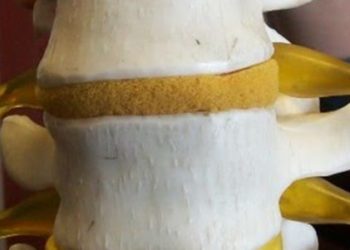Wellness Check: Mental Health
Childhood maltreatment may cause mental health problems
1. In this systematic review and meta-analysis of quasi-experimental studies, there was a moderate association between childhood maltreatment and mental health problems.
2. Furthermore, this association between childhood maltreatment and mental health problems was sustained across different quasi-experimental methods and various psychiatric disorders.
Evidence Rating Level: 1 (Excellent)
Through exposure to things such as abuse and neglect, childhood maltreatment may result in the development of mental health issues later in life. Although it is known that there is an association between childhood maltreatment and mental health problems, the causal nature of this association remains poorly understood. As a result, the objective of the present study was to review quasi-experimental studies investigating the association between childhood maltreatment and mental health to elucidate the causal nature of their relationship.
Of the identified records, 34 quasi-experimental studies (n=54,646 participants, 56.72% female) were included from various sources from database inception to January 2022. Quasi-experimental studies that included measures of childhood maltreatment and examined the association between maltreatment and mental health outcomes were included. The review was performed using PRISMA and MOOSE guidelines. Statistical analysis was performed using multi-level random-effects meta-analysis models. Study quality was assessed using an adapted version of the Newcastle-Ottawa scale. The primary outcome was mental health outcomes.
The results demonstrated that after adjustment for confounding, child maltreatment had a small association with mental health problems. Furthermore, compared to other forms of abuse, institutional neglect and emotional abuse both demonstrated a stronger correlation with mental health issues. Despite these results, the study was limited by the quasi-experimental design, which may have introduced biases. Nonetheless, the present study was the first meta-analysis to investigate causality in the relationship between childhood maltreatment and mental health.
There may be an association between anxiety and metabolic syndrome
1. In this systematic review and meta-analysis, anxiety and metabolic syndrome (MetS) showed a consistent association among cross-sectional studies, although the causality of the association could not be assessed.
2. However, among cohort studies, the findings varied—whereby some studies reported a significant correlation between anxiety and MetS and others reported no significant association.
Evidence Rating Level: 1 (Excellent)
The scientific literature suggests that up to 40% of patients with anxiety may also suffer from metabolic syndrome (MetS). Although the relationship between anxiety and MetS has been previously characterized, there are several new studies to add to the growing body of research. As a result, the objective of the present study was to provide an updated meta-analysis with the goal of further exploring the association between anxiety and MetS.
Of 6,506 identified records, 24 (n=80,466) cross-sectional studies were included from various sources from database inception to January 2023. Observational studies that measured MetS and presented the effect size of the association between anxiety and MetS were included. Studies were excluded if they had low quality scores. Furthermore, in the event of multiple eligible publications being conducted in the same population, the most relevant study was included. The review was performed using PRISMA guidelines. Statistical analysis was performed using random effects analysis. Risk of bias was assessed using funnel plot symmetry, Egger’s and Beg’s tests. The primary outcome was risk of MetS or anxiety.
The results demonstrated that for cross-sectional studies, anxiety and MetS demonstrated a significant association. However, this association was inconsistent and limited with respect to cohort studies. Some cohort studies reported a significant association between anxiety and MetS, while others found no association. Despite these results, the study was limited by the inclusion of mostly cross-sectional studies which prevented the determination of causal relationships. Nonetheless, the present study provided further evidence of the potential association between anxiety and MetS.
Reminiscence therapy improves mental health outcomes in cancer survivors
1. In this systematic review and meta-analysis, cancer survivors who received reminiscence therapy (RT) showed significantly lower scores on anxiety and depression scales compared to controls.
2. Patients who received RT also had statistically significant increases in scores relating to hope and dignity.
Evidence Rating Level: 1 (Excellent)
Reminiscence therapy (RT) has been a popular non-pharmacological intervention for patients experiencing conditions such as Alzheimer’s disease, stroke, and depression. However, little is known about its effects in alleviating symptoms such as anxiety and depression in cancer patients. As a result, the objective of the present study was to synthesize the evidence regarding RT in managing cancer-related symptoms.
Of 347 identified records, 20 (n=1853 cancer survivors) studies were included from various databases from 2010 to 2021. Studies were included if they were randomized controlled trials written in Chinese or English that evaluated cancer patients who underwent RT therapy. Repeated publications were excluded from the study. The review was performed using PRISMA guidelines. Quality assessment was conducted using the Cochrane Manual of Systematic Reviews. Data analysis was done using fixed-effects models, random-effects models, and subgroup analysis. The primary outcome was cancer-related symptoms.
The results demonstrated that RT was more effective than controls in improving both anxiety and depression in cancer survivors. In addition, cancer survivors also reported greater self-esteem, hope, and overall health after receiving RT. Despite these results, the study was limited by the fact that only a few included studies looked at long-term effects of RT, making it hard to decipher the lasting impacts of the treatment. Nonetheless, the present study demonstrated preliminary evidence of the utility of RT in enhancing cancer survivors’ quality of life.
Antidepressants may improve symptoms in patients with inflammatory bowel disease
1. In this systematic review and meta-analysis, patients with inflammatory bowel disease (IBD) who took antidepressants had lower anxiety, depression, and IBD disease activity scores than control groups.
2. In addition, patients who received antidepressants were more likely to reach clinical remission and had higher physical quality of life (QOL) and social QoL.
Evidence Rating Level: 1 (Excellent)
Inflammatory bowel disease (IBD) is often accompanied by psychiatric disorders such as anxiety and depression, which may significantly impact a patient’s quality of life (QoL). Currently, the efficacy of antidepressants in IBD patients is poorly understood. As a result, the objective of the present study was to synthesize new data on the effect of antidepressants on mental and physical health outcomes in patients with IBD.
Of 1,556 identified records, 13 (n=884) studies were included from various sources from database inception to July 2022. Randomized-controlled trials that investigated antidepressant use in individuals with IBD and reported outcomes relating to mental or physical health were included in the review. Studies were excluded if Chinese medicine was used for IBD treatment. The review was performed using PRISMA guidelines. Risk of bias was assessed using the Cochrane risk of bias tool. The primary outcomes were depression and anxiety scores.
The results demonstrated that antidepressants significantly improved depression and anxiety scores in IBD patients. With respect to secondary outcomes, antidepressants reduced IBD disease activity scores and helped induce clinical remission. Patients also reported higher physical QoL and social QoL with antidepressant use. Despite these results, the study was limited by the inclusion of some patients with IBD who had previously used antidepressants or who had other psychiatric conditions. Nonetheless, the present study demonstrated evidence of the effect of antidepressants in improving mental and physical health in IBD patients.
Image: PD
©2023 2 Minute Medicine, Inc. All rights reserved. No works may be reproduced without expressed written consent from 2 Minute Medicine, Inc. Inquire about licensing here. No article should be construed as medical advice and is not intended as such by the authors or by 2 Minute Medicine, Inc.









